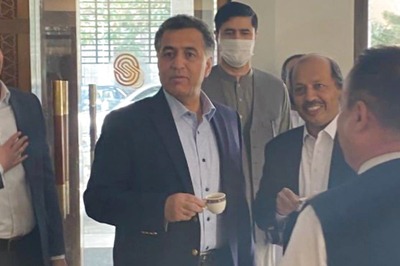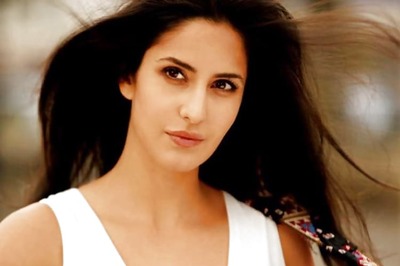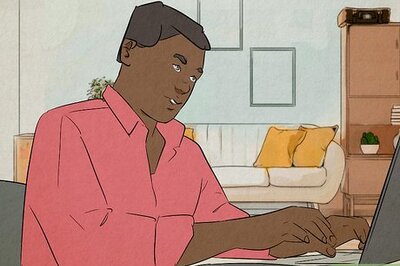Ratna Pathak Shah: Women Don’t Sit in Corners Wearing White Sarees, We Get Up to Whatever We Want to

views
There is a lot more to Ratna Pathak Shah than the snooty upper-middle-class urban woman characters she has been lamentably constricted to playing on screen in the last few years.
The 55-year-old is currently busy promoting Selection Day, her forthcoming web series for Netflix, an adaption of Aravind Adiga’s 2016 eponymous novel, in which she plays an unconventional principal of a Mumbai school who helps two village boys in achieving their cricketing dreams.
In a freewheeling chat, Shah talks about the show, the perception of women on screen, the state of education in India, parenting and why she does such selected work.
The series is primarily peopled by men/boys, with yours being the only female character of any real significance. How important is it in a story about cricket and male ambition?
Very. Aren’t people bored with seeing men and only men? There are other interesting female characters coming along too. I hope that there won’t be such a skewed balance in the coming episodes. But it’s cricket and it is India, so it is going to be men. I hope someone somewhere makes a movie about female cricketers who seem to be doing terrifically well at the moment.
But yes, my character is an interesting counterpoint because education is a dry and difficult subject to bring up in a story. I am very impressed with how Selection Day brings it up, how it slips in this little angle which is as important to its development as the cricket.
In one of the scenes, you’re rolling a marijuana joint—something which has so far largely been portrayed as a prerogative of the young or men, especially in Indian films and shows…
Everyone thinks women sit in a corner wearing white sarees. Aisa thodi hota hai. We get up to whatever we want to. It is a stupid man who believes he can control any woman around. And a woman is stupid if she thinks she can control a man. We are not meant to control each other. We are meant to live with each other. Ideas about age, sex and gender are changing and that’s good. That’s the sign of growing maturity in our society.
Do you think the digital platform is giving content creators more room to be real and brave?
Yes, this opportunity seems to have opened up for different kinds of content and it demands excellence in skills from all involved. Since we are also trying to talk to a global audience, hopefully we will be able to resist our ‘chalta hai’ attitude and the stupid cost and quality cutting that we do. I hope we really learn to put our money where our mouth is and not into major stars’ pockets.
Read| Vir Das on Losing It: There is Nothing More Democratic or Patriotic than Parody
Read| Bollywood Desperately Needs Revival. Experimental, Offbeat Films Are the Only Way Out
Do you think our current education system is pressurising students to perform well only in socially acceptable ways?
The minimisation of education into a commodity is a huge mistake that we have made and are continuing to make. In this madness for success in a particular field, the idea of education has got so warped, so messed up in our country that it has almost lost its original meaning—making human beings more cultured. Now education either makes humans more employable or richer. These are the only two values that are ascribed to it anymore. Education needs questioning in every which way possible.
It serves people in power to keep a large number of people employable but uneducated and unthinking because then they won’t ask questions. Education is always co-opted by people in power.
I am hoping that after seeing such shows, parents will also wake up and ask themselves questions about what kind of a world they want their child to grow up in, what kind of people they want them to become and not just worry about the money their children will make when they grow up.
Selection Day is essentially a story of improbable dreams and the many sacrifices that one makes to realise them. But where does one draw the line? How much is too much?
It’s a big question that is not going to be resolved anytime soon and that all of us will have to deal with individually in our personal lives. I deal with that with my kids. But I have finally realised that I just have to do what I think is right and be careful that what I am doing is not detrimental to the other.
As a parent, that responsibility is enormous. I am hoping that a story like this will open up this question, which does not have an easy answer. It needs to be talked about. Some people need to be pushed, others don’t. But what is important is that opportunity must be given to all. Manju and Radha (the show’s lead characters) should not have to live in a gutter to chase a dream. Society owes that to its members—that people get equal opportunity. There should be no caste, gender or rural-urban divide. This is the kind of equality that our constitution dreams of. So maybe we’ll start asking questions.
Why don’t we see you on screen more often?
Ask somebody else that question please, not me. I really wish to be doing more work but I don’t get more work. So I try to take the best of what’s offered.
Selection Day is slated for a worldwide Netflix release on December 28.
Follow @News18Movies for more.




















Comments
0 comment